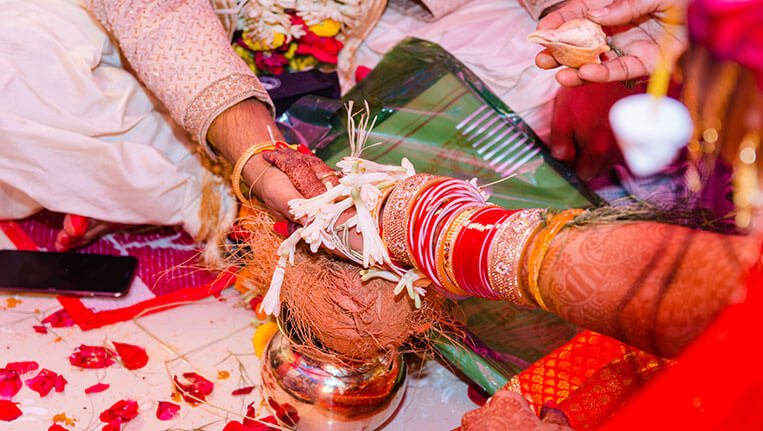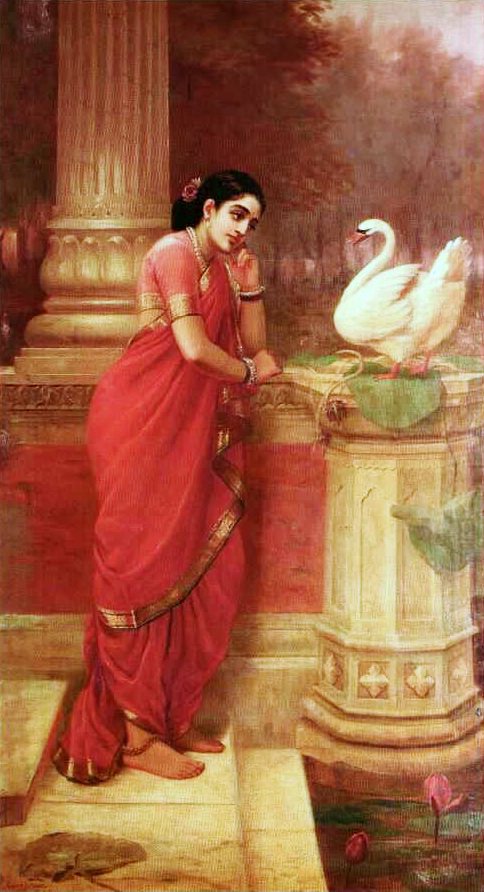Śrī Gaurāṅga Samāja
Visionary Instructions for Development of Kṛṣṇa Consciousness Communities Worldwide
By Śrīla Bhaktivinoda Thākur
Śrī Gauḍīya Patrika, Year 8, Issues 8 & 10
Who can be Part of a Vaiṣṇava Community?
Only those who have faith in Śrī Gaurāṅga Mahāprabhu can be part of His society. After thorough deliberation, we have concluded that humanity will significantly benefit through Śrī Gaurāṅga Samāja, the society of Śrī Gaurāṅga. Śrīla Vṛndāvana Dāsa Ṭhākura has said,
ye vā māne, ye nā māne, saba tāṅra dāsa
Everyone is a servant of Śrī Caitanya, while some accept Him as Bhagavān and others do not[1].
Indeed, every Gauḍīya Vaiṣṇava accepts that Śrī Gaurāṅga Mahāprabhu is Śrī Kṛṣṇa Himself, the Absolute Truth.
Constitutionally, by nature every living being is a servant of Śrī Kṛṣṇa. However, many do not accept this because offences afflict them. Such people will certainly neglect this Śrī Gaurāṅga Samāja, so what will the society do but remain indifferent to them? Those who accept Śrī Gaurāṅga Mahāprabhu in high regard will participate in this society with a one-pointed attention. What doubt can there be in this?
Three types of people have faith in Śrī Gaurāṅga Mahāprabhu –
- Those who have faith that He is the Supreme Lord Śrī Kṛṣṇa Himself,
- Those who have faith that He is the topmost devotee of Supreme Lord Śrī Kṛṣṇa, and
- Those who categorize Him as a great social reformer, the one who established varṇāśrama-dharma.
However, as all these three types of people respect Śrī Gaurāṅga Mahāprabhu, they can be included within the Vaiṣṇava society. It is necessary for these three types of people who have faith in Lord Caitanya Mahāprabhu to be included in the society of Śrī Gaurāṅga.
Those who perform bhajan of Śrī Gaurāṅga Mahāprabhu, knowing Him to be the Supreme Lord Śrī Kṛṣṇa Himself, are His one-pointed devotees who are counted among His intimate associates. This category is further divided. It is because even though some people know Śrī Gaurāṅga to be the Supreme Lord Śrī Kṛṣṇa, they may not consider Him the object of their bhajan. Nonetheless, there is no doubt that everyone in this particular category also demonstrates love for Śrī Gaurāṅga.
Those who consider Śrī Gaurāṅga to be the topmost devotee will indeed propagate love for Śrī Gaurāṅga Mahāprabhu (gaura-prema) from time to time, even if they belong to another sampradāya. Persons in this category can never become disinclined to the promotion of Śrī Gaurāṅga Samāja.
Moreover, those who consider Śrī Gaurāṅga Mahāprabhu to be an ordinary devotee and a native social reformer also belong to His community. If the second and third categories are not included in the society of Śrī Gaurāṅga, then this society cannot be said to benefit the public at large. Taking care to bring them within the community of Śrī Gaurāṅga is thus an intelligent act.
Accordingly, the conclusion is that the society of Śrī Gaurāṅga comprises those great souls who accept Śrī Gaurāṅga as an ideal in every respect.
The Reference to Vaiṣṇava Society in the Scriptures–
There is a narration from Śrī Caitanya Caritāmṛta about the grand assembly of non-devotee scholar named Śṛī Prakaṣānanda Sarasvatī of Kāsi (Vārānasi) inviting Lord Śrī Caitanya Himself along with members of His Vaiṣṇava society for a philosophical discussion.
One question must be considered here – Does Śrī Gaurāṅga approve of such a society or not? If we examine the bhakti-śāstra, we will observe that Śrī Gaurāṅga personally established the foundation of such a society during His prakaṭa-līlā or manifest presence.
O readers! Do you remember that in the holy place of Vārānasi, a grand assembly was held in honour of Śrī Gaurāṅga Mahāprabhu? It was organized by the Brāhmaṇa from Mahārāṣṭra, who was an exceptional devotee and an associate of Mahāprabhu. He invited all the Śaṇkarite sannyāsīs and other paramahaṁsās of Kāsi. Specifically, he requested Śrīman Mahāprabhu to join that assembly so that Mahāprabhu would bestow His mercy upon them all, as well as manifest some of His opulence. Astonished upon beholding Śrīman Mahāprabhu’s grandeur, those sannyāsīs rose from their seats and offered Him, the Lord of our hearts, the most elevated sitting place.
In that assembly, Śrīman Mahāprabhu preached śuddha sva-bhakti, or pure devotional service to Himself (onto Lord Gaurāṇga), and thus became worshipful by all of those present there. The sannyāsīs, their eyes brimming with tears, took shelter in His lotus feet. All varieties of people participated in that grand assembly, which was made more glorious by the presence of paramahaṁsa sannyāsīs, a multitude of brāhmaṇas who were engaged in fruitive activities, countless worldly-minded people, devotees from every sampradāya, and the most elevated pure devotees. In that assembly, the most sublime devotees such as Śrī Sanātana Gosvāmī, Śrī Candraśekhara Ācārya, Śrī Tapana Miśra and Śrī Paramānanda Kirtaniya were also present.
This is described in Śrī Caitanya-caritāmṛta (Adi-līlā 7.58, 7.60-61, 7.65, 7.99-100):
āra dine gelā prabhu se vipra-bhavane |
dekhilena, vasiyāchena sannyāsīra gaṇe ||
The next day, when Lord Śrī Caitanya Mahāprabhu went to the house of that brāhmaṇa, He saw all the sannyāsīs of Benares sitting there.
vasiyā karilā kichu aiśvarya prakāśa |
mahātejomaya vapu koṭi-sūryābhāsa ||
After sitting on the ground, Caitanya Mahāprabhu exhibited His mystic power by manifesting an effulgence as brilliant as the illumination of millions of suns.
prabhāve ākarṣila saba sannyāsīra mana |
uṭhila sannyāsī saba chāḍiyā āsana ||
When the sannyāsīs saw the brilliant illumination of the body of Śrī Caitanya Mahāprabhu, their minds were attracted, and they all immediately gave up their sitting places and stood in respect.
āpane prakāśānanda hātete dhariyā |
vasāilā sabhā-madhye sammāna kariyā ||
Prakāśānanda Sarasvatī, however, caught Śrī Caitanya Mahāprabhu personally by the hand and seated Him with great respect in the midst of the assembly.
prabhura miṣṭa-vākya śuni’ sannyāsīra gaṇa |
citta phiri’ gela, kahe madhura vacana ||
After hearing Lord Śrī Caitanya Mahāprabhu, all the Māyāvādī sannyāsīs were moved. Their minds changed, and thus they spoke with pleasing words.
ye kichu kahile tumi, saba satya haya |
kṛṣṇa-premā sei pāya, yāra bhāgyodaya ||
“Dear Śrī Caitanya Mahāprabhu, what You have said is all true. The only one who is favored by the mercy of the Supreme Lord attains the love of the Godhead.
The Founding of The Society Of Śrī Gaurāṅga and Its Success in Preaching
By reading this narration, we can certainly understand that the beginning of Śrī Gaurāṅga Samāja in the house of the brāhmaṇa from Mahārāṣṭra was manifested by the desire of Śrī Gaurāṅga Mahāprabhu. If He bestows His mercy upon us, the present society of Śrī Gaurāṅga will achieve similar success. If those who honour Śrī Gaurāṅga Mahāprabhu constantly cultivate an understanding of His glories, they will become supremely pure Vaiṣṇavas within no time. Moreover, even if those who do not honour Śrī Gaurāṅga Mahāprabhu at all but yet attend the society’s assemblies and thereby regularly hear sweet narrations about Him, they will also become gentle at heart. Moreover, they will eventually relinquish the impurity of their adherence to other sampradāyas and become wholly pure bhaktas of Gaurāṅga.
As Śrīla Kaviraja Gosvāmī says in Śrī Caitanya-caritāmṛta (Madhya-līlā 2.87):
yebā nāhi bujhe keha, Śunite Śunite seha,
ki adbhuta caitanya-carita |
kṛṣṇe upajibe prīti, jānibe rasera rīti,
śunilei baḍa haya hita ||
If one does not understand in the beginning but continues to hear again and again, the wonderful effects of Lord Caitanya’s pastimes will bring love for Supreme Lord Śrī Kṛṣṇa. Gradually one will come to understand the loving affairs between Kṛṣṇa and the gopīs and other associates of Vṛndāvana. Everyone is advised to continue to hear repeatedly in order to greatly benefit.
Only the Vaiṣṇavas in the Topmost Class Don’t Belong within Formation of Any Society
According to the scriptures, there are three categories of Vaiṣṇavas: uttama, madhyama and kaniṣṭha. Among them, the uttama-Vaiṣṇava, or topmost devotee, does not belong to any society. Nonetheless, his merciful presence in Śrī Gaurāṅga Samāja will bring it much benefit. He inherently sees all beings in a relationship with Bhagavāna; therefore, he does not differentiate between what belongs to him and what belongs to someone else. He does not distinguish between friend and enemy or devotee and non-devotee because he sees every living entity as situated within the Supreme Absolute Truth.
Śrī Haridāsa Ṭhākura, the topmost Vaiṣṇava, possesses all these bhāvas, or moods. Nonetheless, he has a particular affection for the bhakta-goṣṭhī, the community of bhaktas, and He is devoted to the preaching of bhakti.
As stated by Śrīla Sanātana Gosvāmī in Śrī Caitanya-caritāmṛta (Antya-līlā 4.100-103):
avatāra-kārya prabhura—nāma-pracāre |
sei nija-kārya prabhu karena tomāra dvāre ||
The mission of Lord Śrī Caitanya Mahāprabhu, for which He has descended as an incarnation, is to spread the importance of chanting the holy name of the Lord Śrī Kṛṣṇa. Now instead of personally doing so, He is spreading it through you, O Haridāsa Ṭhākura.
pratyaha kara tina-lakṣa nāma-saṅkīrtana |
sabāra āge kara nāmera mahimā kathana ||
“My dear prabhu, you are chanting the holy name 300,000 times daily and informing everyone of the importance of such chanting.
āpane ācare keha, nā kare pracāra |
pracāra karena keha, nā karena ācāra ||
“Some behave very well but do not preach the cult of Kṛṣṇa consciousness, whereas others preach but do not behave properly.
’ācāra’, ’pracāra’,—nāmera karaha ’dui’ kārya |
tumi—sarva-guru, tumi jagatera ārya ||
“You simultaneously perform both duties in relation to the holy name by your personal behaviour and by your preaching. Therefore, you are the spiritual master of the entire world, for you are the most advanced devotee in the world.”
The Duty of An Intermediate Vaiṣṇava In Śrī Gaurāṅga Samāja
The Vaiṣṇavas on the madhyama, or intermediate, level remain under the guidance of uttama-Vaiṣṇavas, and are the benefactors of kaniṣṭha-Vaiṣṇavas, neophyte devotees. Therefore, uttama and madhyama-bhaktas are qualified for the bhajan section of Śrī Gaurāṅga Samāja.[2] Although they may occasionally participate in the activities of the working section, they do not manifest their competence in such work like the kaniṣṭha devotees. Kaniṣṭha devotees are fond of activities of the working section of the society. However, with the assistance of the kaniṣṭha-Vaiṣṇavas, they accomplish whatever work needs to be done.
“Iṣṭa-Goṣṭhī” And “Vaiṣṇava Society” Are Other Ways Of Referring To Śrī Gaurāṅga Samāja
The general society of Gaurāṅga was founded during the Lord’s manifest pastimes in Vārāṇasī, and the iṣṭa-goṣṭhī process was also established at that time. The Vaiṣṇavas participated in some form of iṣṭa-goṣṭhī even before the advent of Śrī Gaurāṅga. At Mahāprabhu’s time also those iṣṭa-goṣṭhīs were known as the “Assembly of Gaurāṅga” or the “Vaiṣṇava assembly”. Once, while in an iṣṭa-goṣṭhī with all His associates at Siddha-bakula (in Puri-dhāma), Mahāprabhu spoke to Śrī Rupa Gosvāmī [Śrī Caitanya-caritāmṛta antya-līlā 1.130]:
prabhu kahe—”kaha, kene kara saṅkoca-lāje?
granthera phala śunāibā vaiṣṇava-samāje?”
Mahāprabhu encouraged Rupa Gosvāmī, saying, “Why are you hesitating out of shyness? You should recite the good fruit of your writing to the Vaiṣṇava assembly.”
Iṣṭa-Goṣṭhī Also Means Kṛṣṇa-Katha-Goṣṭhī
Without the association of śuddha-bhaktas[3], or pure devotees, there is no question of holding an iṣṭa-goṣṭhī. The word iṣṭa means “desired subject”, and goṣṭhī means “assembly”. These two words combine to form the term iṣṭa-goṣṭhī, which refers to an assembly of sadhus who are devoted to śuddha-bhakti, or the practice of pure devotion. śuddha-bhaktās are rare in this world, and therefore only a few śuddha-bhaktās can be found in any single iṣṭa-goṣṭhī. Even a gathering of just three Vaiṣṇavas constitutes an iṣṭa-goṣṭhī. This is described in Śrī Caitanya-caritāmṛta (Antya-līlā 4.52):
prabhu āsi’ prati-dina milena dui-jane |
iṣṭa-goṣṭhī, kṛṣṇa-kathā kahe kata-kṣaṇe ||
Every day Śrī Caitanya Mahāprabhu would go there to meet these two stalwart devotees and discuss topics of Kṛṣṇa in their iṣṭa-goṣṭhī for some time.
A meeting of only two Vaiṣṇavas is called a Kṛṣṇa-katha-goṣṭhī. This is stated in Śrī Caitanya-caritāmṛta (Antya-līlā 4.136):
dui-jana vasi’ kṛṣṇa-kathā-goṣṭhī kailā |
paṇḍitere sanātana duḥkha nivedilā ||
When Jagadānanda Paṇḍita and Sanātana Gosvāmī sat together and began to discuss topics about Kṛṣṇa (Kṛṣṇa-katha-goṣṭhī), Sanātana Gosvāmī submitted to Jagadānanda Paṇḍita the cause of his distress.
Śrī Gaurāṅga Samāja Is Universal
The purport is that when all types of people congregate in assemblies organized by devotees or faithful people, a general assembly of Gaurāṅga is formed. A congregation consisting solely of devotees is called a Vaiṣṇava assembly, or an iṣṭa-goṣṭhī of the Vaiṣṇavas. When two śuddha-bhaktas meet, a Kṛṣṇa-katha-goṣṭhī takes place. And when a single śuddha-bhakta resides somewhere to exclusively chant the holy name, it is a place of nirjana-bhajan, or solitary devotional practice. The people in all these categories are included in Gaurāṅga’s society. It can therefore be concluded that the purpose of Śrī Gaurāṅga’s congregation is to cultivate activities related to the eternal, constitutional occupation of the living entity (jaiva-dharma) throughout the universe. The eternal, constitutional occupation of every living being is devotional service to Supreme Lord Śrī Kṛṣṇa.
The Founding Of Śrī Gaurāṅga Samāja in Kalikata (Kolkata) and Instructions For The Society’s Leaders
By the inspiration of Śrī Gaurāṅga Mahāprabhu, Śrī Gaurāṅga Samāja has been established in the vast city of Kalikata (Kolkata). This is a matter of extreme good fortune for the public. Now it is the responsibility of every noble-hearted and genuine seeker of the Absolute Truth to work on promoting and preserving it.
This society will not remain undisturbed unless its members vigilantly avoid selfishness, hypocrisy and the desire for honour and prestige. In the land of Bengal, these three faults pollute whatever grand mission is inaugurated, and consequently, that mission is eventually ruined. With folded hands, we humbly beg the big-hearted leaders of this society to remain ever-conscious of this.
If the members of this society can follow all the ancient rules and regulations of sat-dharma, or true religion, while remaining unaffected by the three improprieties mentioned above, the society will flourish. Unity alone is the life of any community. The introduction of a new opinion or the divergence of opinion will destroy the unity of its members and eventually ruin the very life of the society. We, however, will perform kirtana of Gaurāṅga Mahāprabhu’s glories and never be envious of the opinions and activities of the other sampradāyas.
The most venerable Haridāsa ṭhākura has said in Śrī Caitanya-Bhāgavata, ādi-khaṇḍa 16.76–78:
balite lāgilā tā’re madhura Uttara |
“śuna, bāpa, sabārai ekai īśvara ||
nāma-mātra bheda kare hinduye yavane |
paramārthe ’eka’ kahe korāṇe purāṇe ||
eka śudha nitya-vastu akhaṇḍa avyaya |
paripūrṇa haiyā vaise sabāra hṛdaya ||
He then sweetly said to the king, “Listen, dear sir. The Supreme Lord of all is one without a second. The Hindus and Moslems differentiate the Lord only by name, but in spiritual vision the Lord is one. This is confirmed in the Purāṇas and the Koran. The pure, eternal, nondual, inexhaustible Lord sits in the heart of everyone.
se prabhura nāma guṇa sakala jagate |
balena sakale mātra nija-śāstra-mate ||
ye īśvara, se punaḥ sabāra bhāva laya |
hiṁsā karilei se tāhāna hiṁsā haya ||
“The names and qualities of that Lord are chanted by everyone according to their respective scriptural injunctions. “The Supreme Lord accepts the devotion of everyone, but if anyone is envious of His children, then He retaliates. [Śrī Caitanya-Bhāgavata, ādi-khaṇḍa 80–81]
khaṇḍa khaṇḍa hai deha yāya yadi prāṇa |
tabu āmi vadane nā chāḍi hari-nāma ||
“Even if my body is cut into pieces and I give up my life, I will never give up chanting the Lord’s holy name.” [Śrī Caitanya-Bhagavata, ādi-khaṇḍa 16.94]
Delineating the Behaviour of the Members of the Vaiṣṇava Society
The society of Gaurāṅga is certain to develop if its noble-hearted members adhere to the above guidelines. It is essential that they follow certain time-tested principles. In the general meetings of Śrī Gaurāṅga Samāja,[4] recitations, explanations, scriptural discourses and nāma-saṅkīrtana can be performed, but it will be offensive to hold discourses imbued with rasa or to sing rasa-kirtana in such assemblies. This can take place only in an iṣṭa-goṣṭhī. It is essential to observe certain principles, as witnessed in the character of Mahāprabhu.
It is described in Śrī Caitanya-caritāmṛta, antya-līlā 11.12
dine nṛtya-kīrtana, īśvara-daraśana |
rātrye rāya-svarūpa-sane rasa-āsvādana ||
In the daytime Śrī Caitanya Mahāprabhu engaged in dancing and chanting and in seeing the temple of Lord Jagannātha. At night, in the company of His most confidential devotees, such as Rāmānanda Rāya and Svarūpa Dāmodara Gosvāmī, He tasted the nectar of the transcendental mellows of Lord Śrī Kṛṣṇa’s pastimes.
This implies that there is no pleasure in discussing rasa in the association of general people and that such discussions will substantially impede one from relishing rasa. This hindrance does not appear in an iṣṭa-goṣṭhī.
It is necessary to preserve the etiquette of kirtana when nāma-kirtana is performed. In this regard, it is also necessary to decide what is most effective. If the members of the Vaiṣṇava society themselves perform kirtana, that kirtana will bear the most fruit. Listening to the kirtana of hired musicians who perform for earning money is both offensive and fruitless.
Caution to the Preachers Regarding Their Qualification
It is vital that Śrī Gaurāṅga Samāja exercises great care in its preaching. The discourses and instructions should be strictly in accordance with the teachings Śrī Gauracandra, bestowed upon the jivas of Kali-yuga out of His boundless compassion.
The responsibility to preach is best given to the members of the bhajan section. Mere eloquence cannot make one a preacher of Śrī Gaurāṅga’s teachings. If some young, learned great souls attend iṣṭa-goṣṭhīs of the bhajan section and therein discuss in a simple-hearted way the teachings of Śrī Gaurāṅga, they will quickly become adept preachers.
If the society of Gaurāṅga consists of preachers who do not have the understanding that the Lord’s name (Nāma) and the Lord Himself (Nāmi) are non-different, and if they do not have faith that this non-different reality is the Supreme Absolute Truth (parama brahma-tattva), then they will not confer any welfare to others. Rather, their preaching will only have a negative effect. This is most vital. The only qualified preachers are those who have acquired knowledge about the intrinsic nature of śuddha-bhakti, and who relish nāma-rasa, the nectar of the holy name, being completely free from offences.
It is essential for all preachers to be fully acquainted with nāma-aparadha, offences to the holy name of the Lord. Those who are aware of these offences are qualified to preach the glories of the holy name. In disseminating the glories of the holy name, one must also give instructions about the necessity of consciously avoiding nāma-aparādha. Preachers who do not do so will themselves become offenders to the holy name.
The Genuineness of Society of Gaurāṅga is that this Society Includes Viśuddha-Vaiṣṇavas from its Inception.
Viśuddha-Vaiṣṇavas means devotees on the transcendental level of consciousness. Previously, we explained that a society of Śrī Gaurāṅga that does not accommodate all types of Vaiṣṇavas will be short lived. That said, the fact is that a society founded with viśuddha-Vaiṣṇavas, or pure devotees on the transcendental platform, as members is to be regarded as the true Śrī Gaurāṅga Samāja. Among the various Vaiṣṇavas in such a congregation, the viśuddha-Vaiṣṇavas are immersed in the bliss of bhajan, and are mostly inactive in developing their worldly life. Until those who have an inclination for bhajan become specifically immersed in the bliss of bhajan they can engage in activities to advance their worldly life. However, if they do not get the association of Vaiṣṇavas who are immersed in the bliss of bhajan, they will become completely materialistic within no time. For such people, it is nothing but self-deception to establish and promote themselves as representing the society of Śrī Gaurāṅga, without associating with śuddha-Vaiṣṇavas.
Progress In Bhajan Is Not Possible Without the Association Of An Elevated Vaiṣṇava
One may certainly be engaged in spreading the holy name of Śrī Kṛṣṇa Caitanya while living with extremely materialistic people. But without having the association of Vaiṣṇavas who are deeply absorbed in the bliss of bhajan, one’s life will go in vain and gradually one may fall down. Those in the society of Gaurāṅga may see this happening to certain members. However, if they still do not seek the association of those devotees who are deeply absorbed in the bliss of bhajan and include them within their society, what will become of their society? We cannot say.
The Preachers of Bhakti-Dharma Always Reject the Policy Of Conciliation, Which Is Opposed To The Teachings Of Śrī Gaurāṅga.
Nowadays, it is seen that the members of Śrī Gaurāṅga Samāja are not performing any special activities beyond celebrating the festival of Mahāprabhu’s appearance. It does not seem that by holding assemblies in the homes of two or three materialistic people anything significant will be accomplished. If they simply try to satisfy the materialists, anarthas will gradually arise in them. By agreeing with the opinion of materialistic people they will continue to float on the unending wave of impersonalism.
To propagate bhakti to Śrī Gaurāṅga, it is essential that in taking the help of materialistic people, one is not obliged to agree with their understanding. To accept conceptions that oppose the teachings of Śrī Gaurāṅga in order to satisfy the minds of materialistic people is utterly inappropriate. Respect all beings in this world. Try to remove the suffering of every living entity. While living with others, try to act for their welfare. Never forget, however, to follow the supremely ideal character and absolutely essential instructions of Śrī Gaurāṅga. In every city, perform Śrī Kṛṣṇa-saṅkīrtana and propagate Śrī Gaurāṅga’s teachings.
An Instruction of Benevolence To Śrī Gaurāṅga Samāja:Travel and Spread The Teachings Of Śrī Gaurāṅga
O devotees at Śrī Gaurāṅga Samāja! –Go from door to door with the scripture, Śrī Caitanya-caritāmṛta, in your hands and spread the name and teachings of Śrī Caitanya Mahāprabhu. Just as Śrī Mahāprabhu ordered Śrī Nityānanda Prabhu and Śrī Haridāsa to travel everywhere and preach, you also become the servant of Śrī Gaurāṅga and go to every country, engaging honest people in circulating Śrī Gaurāṅga’s message.
This preaching mission cannot be accomplished by dishonest people. Immediately establish a Vaiṣṇava school for this purpose. Educate some selfless people of good character and give them the responsibility of itinerant preaching in every town and village. Most blessed indeed are they who can do this. Those who do not follow such a formula will simply be imitating the supremely pure character of Śrī Mahāprabhu.
–Translated from Śrī Gauḍīya Patrika (Bengali), Year 8, Issues 8 & 10
Jai Śrī Kṛṣṇa Caitanya Prabhu Nityanānada
Śrī Advaita Gadādhara Śrīvāsādi Gaurabhakta Vṛnda
Hare Kṛṣṇa Hare Kṛṣṇa Kṛṣṇa Hare Hare
Hare Rāma Hare Rāma Rāma Rāma Hare Hare
–Translated from Śrī Gauḍīya Patrika (Bengali), Year 8, Issues 8 & 10
The following article of our most revered Śrīla Bhaktivinoda Ṭhākura is written at the time of establishing Śrī Gaurāṅga Samaj and before he began to use the name Viśva Vaiṣṇava Rāja Sabhā for uniting all Vaiṣṇavas. His unique vision to spread Śrī Gaurāṅga’s teachings everywhere is self-evident.
[1] A similar verse appears in Śrī Caitanya-caritāmṛta (Ādi-līlā-6.85): “keha māne, keha nā māne, saba tāṁra dāsa– Everyone is a servant of Śrī Caitanya, even if some accept Him as Bhagavān and others do not.”
[2] According to Śrīla Bhaktivinoda Ṭhākura, the society of Śrī Gaurāṅga has two divisions: the bhajan section and working section–the section that focuses on external work. The division a person belongs to depends on his adhikāra, or qualification.
The Vaiṣṇavas in the bhajan section of Śrī Gaurāṅga’s society commonly take pleasure in nirjana-bhajan, or solitary absorption in the holy name, and in iṣṭa-goṣṭhī (a gathering of like-minded devotees in which they discuss their iṣṭa or worshipful Lord. Thus they attain much satisfaction and pleasure). There are two types of iṣṭa-goṣṭhī: personal practice (Ācāra) and missionary work (pracāra). To maintain their practices, such Vaiṣṇavas remain engaged in reciting and hearing scriptures like Śrīmad-Bhāgavatam, and in performing harināma-kirtana. At the time of preaching, they impart knowledge of bhāgavat-tattva, jiva-tattva, rasa-tattva and the glories of the holy name of Śrī Hari, according to the qualification of the listener.
[3] One of the definitions of śuddha-bhakta given by Śrīla Bhaktisiddhanta Sarasvati Prabhupāda is one who is free from the desire for wealth, women, and fame.
[4] When all types of people congregate in assemblies organized by devotees or faithful people, a general assembly of Gaurāṅga is formed.





